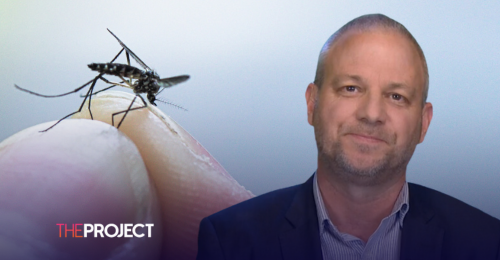A joint venture between the CSIRO and a UK company Oxitec is hoped to shrink mozzie numbers in Queensland.
They'll use gene-edited male mosquitos to reduce the general mozzie population.
It means that when they mate, they'll pass on a DNA tweak that kills female larvae.
All that's needed now is the green light from regulators.
CSIRO Director of Health & Biosecurity Professor Brett Sutton told The Project works by having genetically modified mosquitoes as eggs grow up. The male mosquitoes, the non-biting versions, mate with the wild female mosquito populations.
“And their offspring carrying that gene means all of the females don't get to maturity. And so, the population halves every generation, and only male mosquitoes that are the non-biting ones are born.”
“It’s a great way to control numbers and to make sure these ‘friendly mosquitoes’ are the ones that are mostly in the population.”
The modification is carried only by male mosquitoes, so the female mosquitoes don’t mature to the stage where they seek out blood.
The modification also means that the mosquitoes are glow-in-the-dark red, so they are easy to spot in the wild.
When asked if there is a danger in messing with nature in this way, Sutton explained that this only affects the invasive species of mosquitoes that shouldn’t be there in the numbers that they are.
“For example, Aedes aegypti, which is in Queensland, it carries dengue, Zika, Japanese encephalitis, chikungunya and other viral diseases that spread across Asia and the Pacific, and climate change is expanding that range,” Sutton explained.
“So, if anything, it's a return to how things might have been historically.”





























